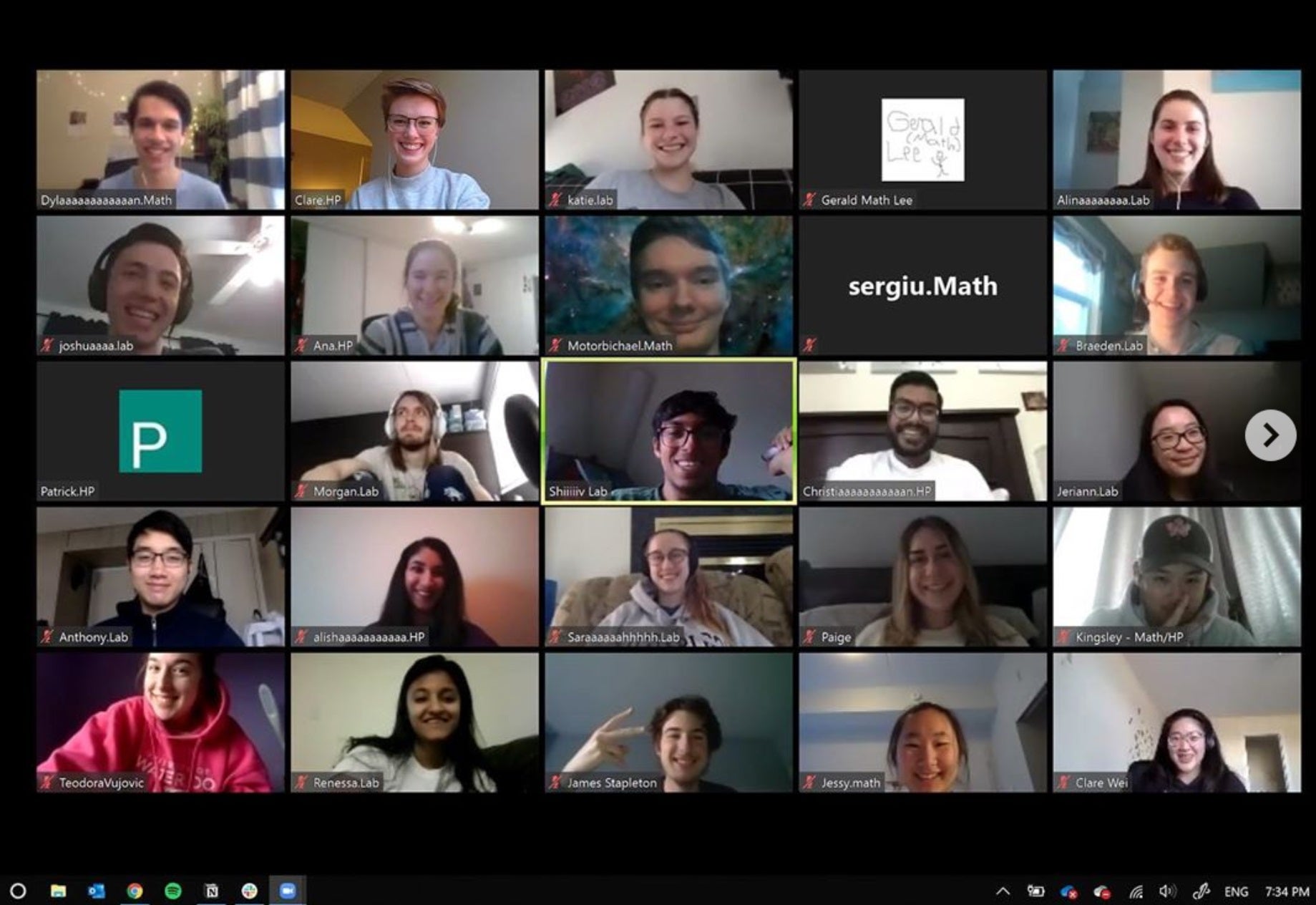A student design team at the University of Waterloo recently earned a gold medal at an international competition involving synthetic biology.
REMINE was one of almost 250 teams from around the world competing at the International Genetically Engineered Machine (iGEM) contest, which was held virtually due to the COVID-19 crisis.
Its project involved development of a bioreactor containing metal-binding proteins to remove and recover toxic but valuable heavy metals from electronic manufacturing wastewater.

Members of REMINE, a student team that recently earned a gold medal at the 2020 iGEM contest.
There were almost 40 members on the multi-disciplinary Waterloo team, including about a dozen students from various engineering programs.
iGEM challenges students to push the boundaries of synthetic biology by tackling everyday issues facing the world. Team members work together to design, build, test and measure systems using interchangeable biological parts and standard molecular biology techniques.
REMINE was a finalist in three categories on its way to a gold-medal finish, the first for a Waterloo team since 2016.